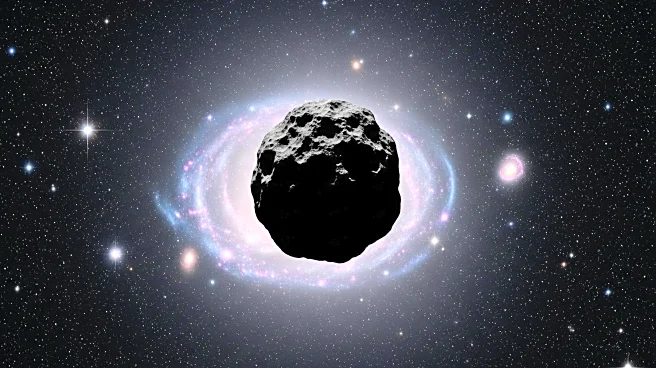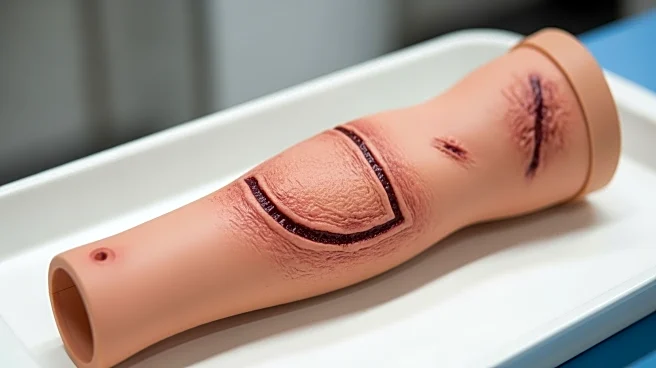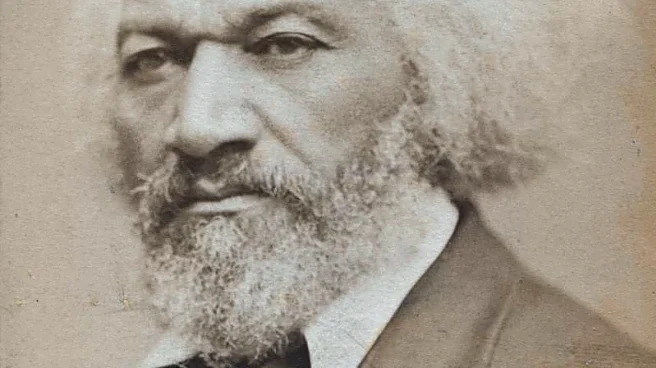What's Happening?
NASA's OSIRIS-REx mission has uncovered significant findings from samples collected from the asteroid Bennu. These samples contain a mix of materials, including stardust that predates the formation of the sun. The research, detailed in several recently published studies, highlights Bennu as a 'time capsule' preserving clues about the early solar system. The samples include dust formed within the solar system, organic matter from interstellar space, and presolar grains. These grains, identified by their unique chemical signatures, offer insights into the types of stars they originated from, many of which no longer exist. The studies also reveal that Bennu's surface has been shaped by space weathering, including micrometeorite impacts and solar wind exposure, creating microscopic craters and molten rock splashes.
Why It's Important?
The discovery of ancient stardust on Bennu is crucial for understanding the early solar system's formation and evolution. These findings provide a rare glimpse into the materials present during the solar system's nascent stages, offering valuable insights into the processes that shaped planetary bodies. The research underscores the importance of direct sample collection from asteroids, as meteorites that fall to Earth often lack comprehensive historical context. By analyzing Bennu's samples, scientists can better understand space weathering processes, which affect all asteroids and contribute to their surface evolution. This knowledge is vital for future asteroid exploration missions and could inform strategies for planetary defense against potential asteroid impacts.
What's Next?
The studies suggest that further analysis of Bennu's samples could refine our understanding of asteroid surface weathering and the role of impacts in reshaping these celestial bodies. The comparison with samples from asteroid Ryugu, collected by Japan's Hayabusa2 mission, indicates that impacts may significantly influence asteroid surfaces. Continued research may lead to new insights into the properties controlling space weathering, which could be extrapolated to other asteroids. These findings may also guide future missions aimed at collecting samples from other asteroids, enhancing our knowledge of the solar system's history and evolution.
Beyond the Headlines
The discovery of presolar grains on Bennu raises intriguing questions about the journey of these materials through space before becoming part of the asteroid. The grains' survival through extreme conditions, including heat and water reactions, highlights the resilience of cosmic materials. This research may also have implications for understanding the distribution of organic matter in the solar system, potentially informing studies on the origins of life. The findings contribute to a broader understanding of cosmic material exchange and the interconnectedness of celestial bodies across vast distances.










